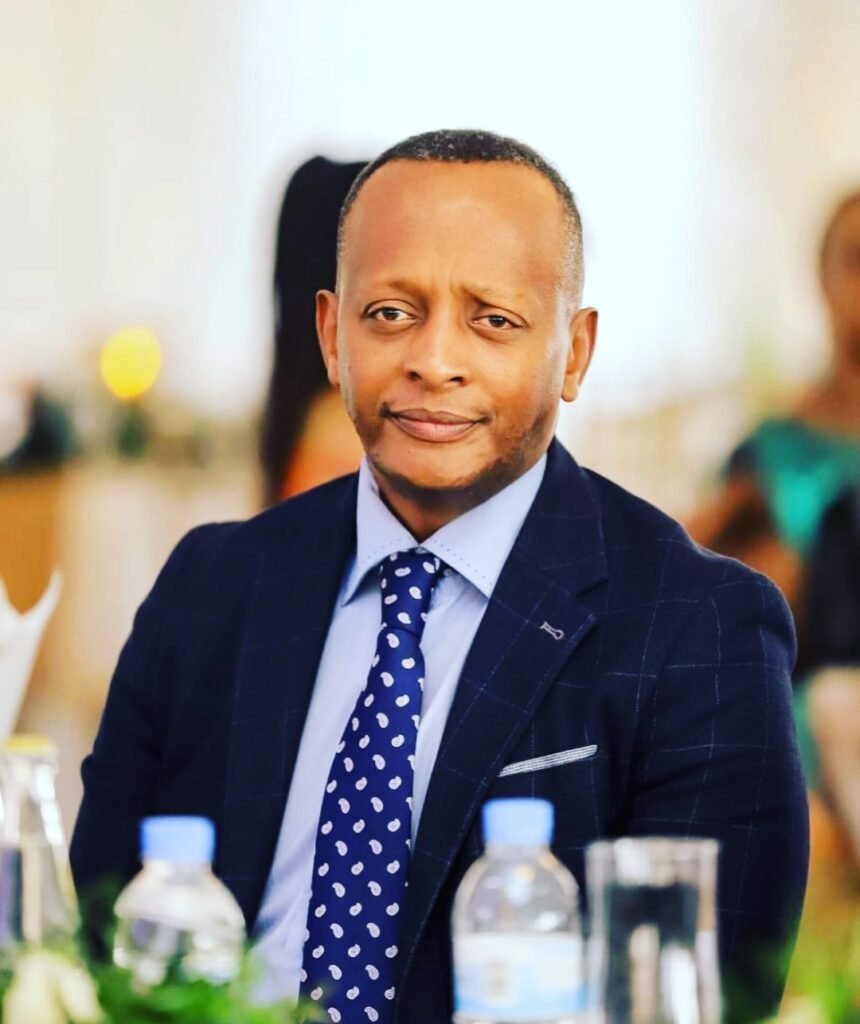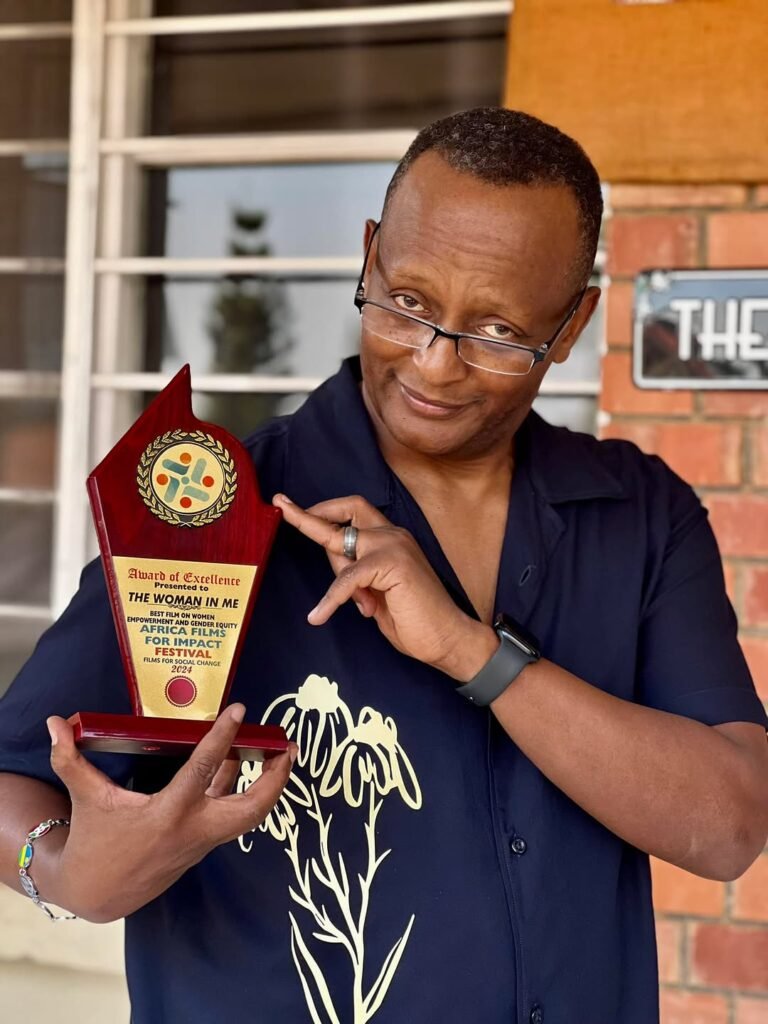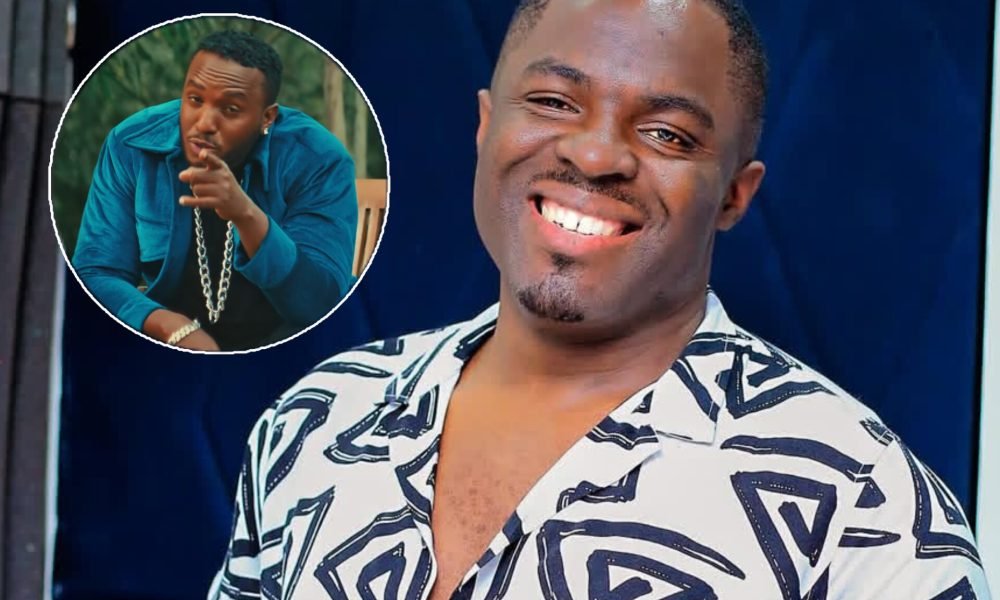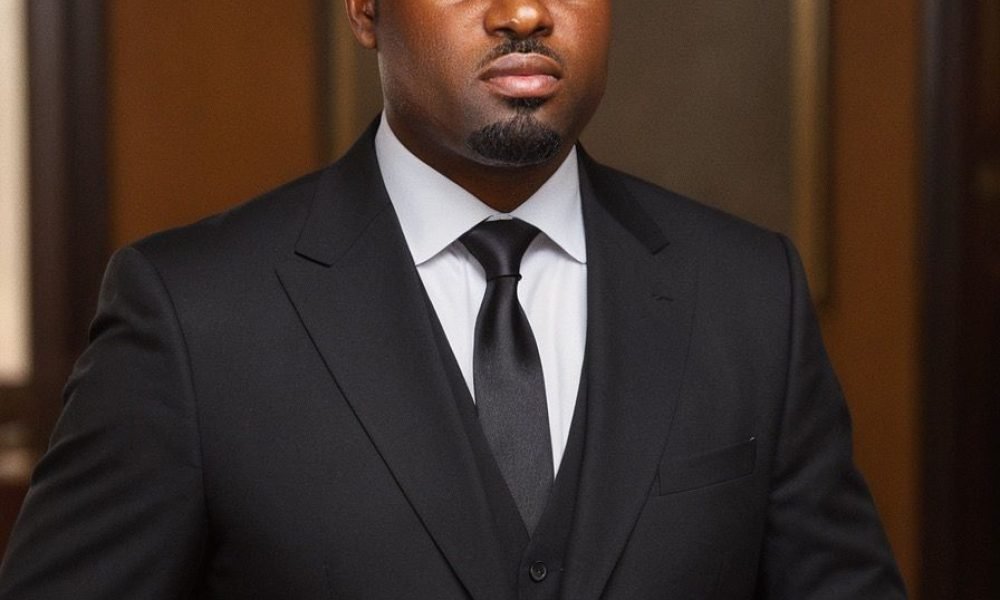He paved the way for a generation of Rwandan filmmakers. Where others saw obstacles, Eric Kabera saw possibilities. Out of that vision, he created Hillywood — the name that gave Rwanda’s cinema industry its identity and pride. He also founded the Rwanda Film Festival, the country’s first traveling film showcase, which brought cinema to hillsides and villages across the nation. Many call him the “Godfather of Rwandan Cinema,” a title that carries weight, for without his influence, the industry would not be where it is today. Some say a person becomes a hero only after death, but to many Rwandan filmmakers, Eric Kabera is already a living hero. A legend. A builder of legacies that will not be forgotten.
Early Life and the roots of a filmmaker
Eric Kabera was born in 1970 in Zaire, today known as the Democratic Republic of Congo (DRC). Though raised outside Rwanda, his destiny would be forever intertwined with his homeland’s most defining story.
In April 1994, when the Genocide against the Tutsi erupted, Kabera was living in the DRC. The tragedy struck him personally: he lost 32 family members. That unimaginable loss became the fire that fueled his career. Instead of turning away, Kabera chose to respond through art — to document, to preserve memory, and to give voice to those silenced.
Before he fully embraced filmmaking, Kabera honed his skills alongside international journalists. In the late 1990s, he worked with BBC correspondents Fergal Keane and George Alagiah, sharpening his instincts for truth-telling and storytelling. These early experiences gave him not only technical training but also the courage to carry Rwanda’s untold stories to the world.
Breaking ground in film
Kabera made his first film in 1997, Changing Times in Challenging Times, capturing Rwanda’s transformation in the aftermath of tragedy. But it was his groundbreaking feature in 2001, 100 Days, that truly introduced him — and Rwanda — to the global cinema stage.
100 Days was the very first feature film about the genocide, and the first to be shot in Rwanda after 1994. Directed by British filmmaker Nick Hughes and produced by Kabera, it broke barriers in both content and method. The film used no professional actors — instead, genocide survivors, both Tutsi and Hutu, played the roles. Shot on location at massacre sites, the film carried a haunting authenticity that few works of cinema could ever replicate.
The film not only introduced Rwandan narratives to international audiences but also laid the groundwork for future productions such as Hotel Rwanda and HBO’s Sometimes in April, both of which Kabera contributed to. Through these projects, he showed that Rwanda could reclaim its voice and tell its own stories rather than leaving them in the hands of outsiders.

Keeper of memory and cultural storyteller
Kabera’s vision extended far beyond a single film. In 2004, on the 10th anniversary of the genocide, he directed and produced Keepers of Memory, a powerful documentary giving space to both victims and perpetrators. It was an unflinching exploration of trauma, memory, and reconciliation.
That same year, he co-produced Through My Eyes with the Rwanda Cinema Centre — a documentary crafted by young Rwandans, reflecting on their past and dreams for the future. Soon after came Rowing into the Sunrise (2005), supported by the United Nations Development Programme, which highlighted Rwanda’s post-genocide rebirth.
Though known globally for his genocide-focused work, Kabera resisted the idea that Rwandan cinema should be defined by tragedy alone. In 2007, he voiced his dream of producing a comedy — a statement that underscored his belief that cinema should also capture joy, resilience, and laughter.
That vision came to life in 2010 with Africa United, a British-Rwandan co-production about three children journeying to the World Cup. The film’s warmth, humor, and international acclaim proved Rwanda’s capacity to tell uplifting stories as well.
Later works like Intore: The Chosen combined memory with art, documenting Rwanda’s recovery through music and dance two decades after the genocide. Each project showed Kabera’s ability to balance the past with the future — using cinema as both a mirror and a bridge.
Building institutions
Kabera knew that a single filmmaker could not carry an entire industry. Rwanda needed institutions.
In 2001, he founded the Rwanda Cinema Centre (RCC), with a mission to train emerging filmmakers and help them tell Rwandan stories with authenticity. The RCC launched initiatives like Films on Youth by Youth and outreach programs that brought cinema to rural audiences. Quickly, it became one of East and Central Africa’s most vibrant filmmaking hubs.
But his most transformative creation came in 2005: the Rwanda Film Festival. Unlike traditional festivals confined to city theaters, Kabera brought inflatable screens to villages, towns, and rural communities across the country, making cinema accessible to all. Rwanda’s hills became outdoor theaters, turning the festival into a national celebration.
At the same time, Kabera popularized the term “Hillywood” — a nickname for Rwanda’s cinema industry, inspired by both Hollywood and the country’s identity as the “Land of a Thousand Hills.” While the Rwanda Film Festival ran for 15 editions (2005–2019), Hillywood became a lasting cultural concept: shorthand for Rwanda’s rise as a filmmaking nation.
Kwetu film institute and education
In 2011, Kabera founded the Kwetu Film Institute, Rwanda’s first formal film and digital media school. “Kwetu,” meaning “home,” embodied his vision of a safe space where aspiring filmmakers could learn, create, and dream.
Supported by the Government of Rwanda and endorsed by the Academy of Motion Picture Arts and Sciences, Kwetu has offered diploma programs, training, and mentorship to countless young talents. The institute continued to shape the next generation of African storytellers, equipping them with both skills and confidence to compete on the global stage.
Regional and global engagement
Kabera’s influence transcended Rwanda’s borders. In 2003, he co-founded the East African Filmmakers Forum, later evolving into a union that brought together filmmakers from Kenya, Uganda, Tanzania, Rwanda, Burundi, Sudan, Ethiopia, Eritrea, and Somalia. His leadership placed East African cinema firmly on the continental map.
Internationally, his films have screened at over 80 festivals. He has been honored by the Directors Guild of America, and in 2012 received the African Creative Visionary Award at the Pan African Film Festival.
Kabera’s work also drew the attention of global icons. Mira Nair, Danny Glover, Alfre Woodard, and Steven Spielberg’s USC Shoah Foundation all sought him out as a collaborator and advisor. He also worked with Mira Nair’s Maisha Film Lab in Uganda, alongside Spike Lee, Raoul Peck, and Sofia Coppola.
His story has been covered by BBC, CNN, Al Jazeera, PBS, Sky News, Reuters, RFI, NHK, and more. He has lectured at the United Nations, UCLA, USC, CalArts, and Tokyo University of Foreign Studies, inspiring audiences far beyond Africa.

Vision, legacy, and ongoing Work
Despite decades of groundbreaking work, Kabera’s vision continues to grow. In 2007, he spearheaded the plan to build Rwanda’s first multiplex cinema in Kigali — a two-screen complex overlooking the city. Though stalled in 2012 due to financing, Kabera remains determined to see Rwanda’s cinematic infrastructure expand.
More recently, he has strengthened his international footprint, running his studio between Kigali and Los Angeles, creating a bridge between Rwanda and Hollywood. His latest film, The Woman in Me (2024), has been screened at several prestigious venues, including the United Nations, further cementing his role as a global voice for African storytelling.
Today, Kabera is recognized not only as a filmmaker but as the architect of Rwanda’s cinema industry. He popularized the word “Hillywood,” founded the institutions that nurtured a new wave of filmmakers, and built platforms that gave Rwanda a cinematic voice on the global stage.
Through his films, his schools, his festivals, and his relentless advocacy, Eric Kabera has transformed Rwanda into a rising hub of cinema. He is a storyteller, a builder, and a visionary who turned tragedy into creativity and silence into storytelling.
For Rwandans and the world, Eric Kabera remains what many already call him: the Godfather of Rwandan Cinema — a living legend whose legacy is still unfolding.







